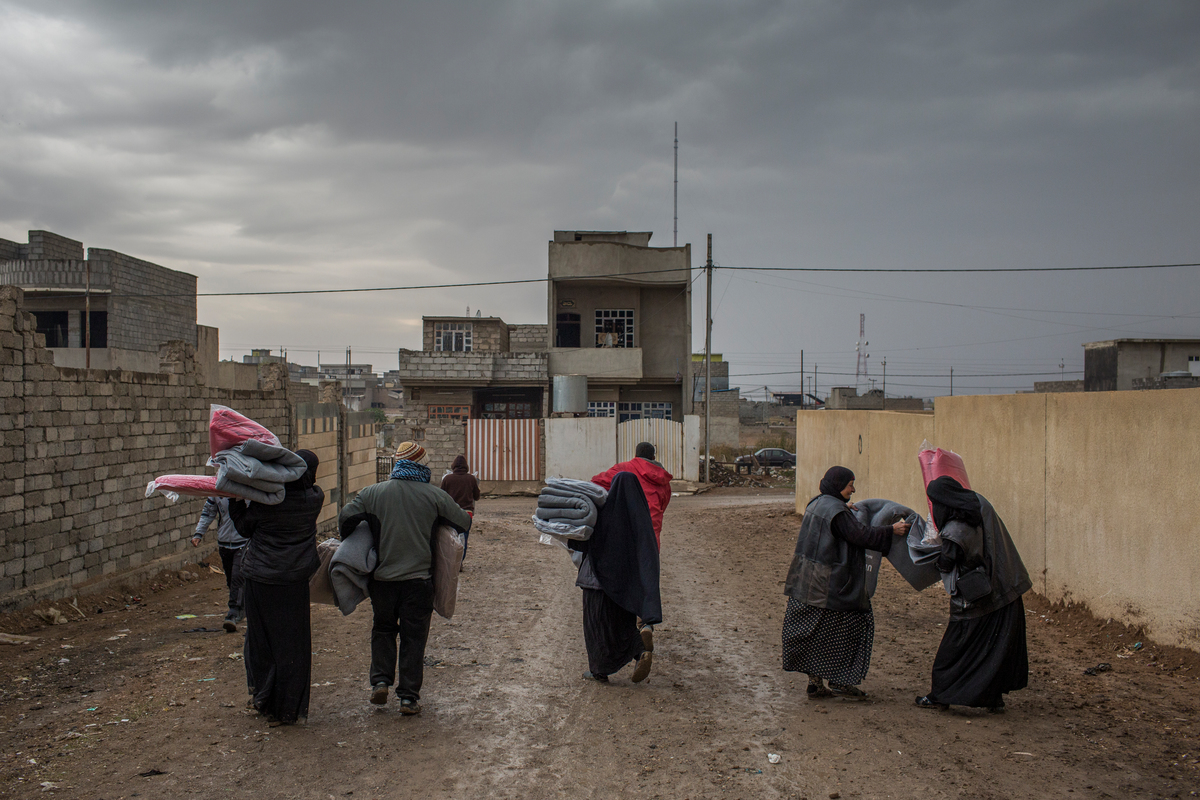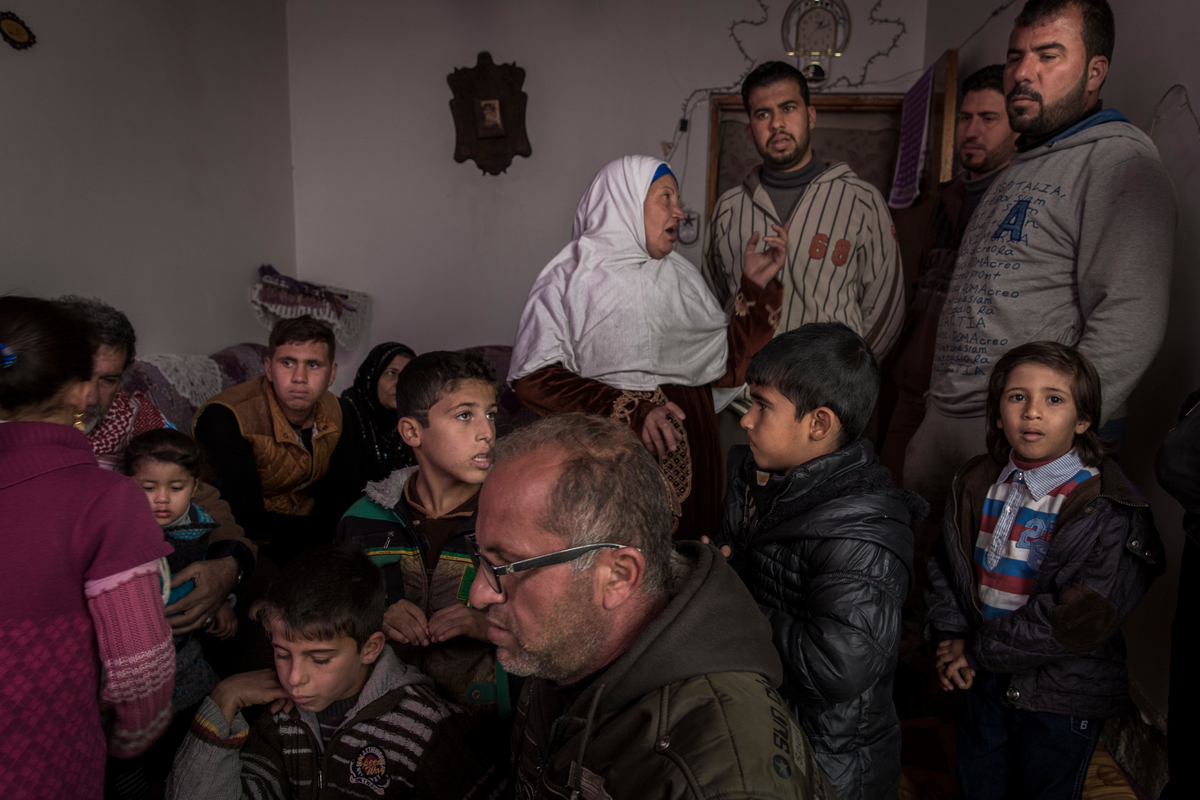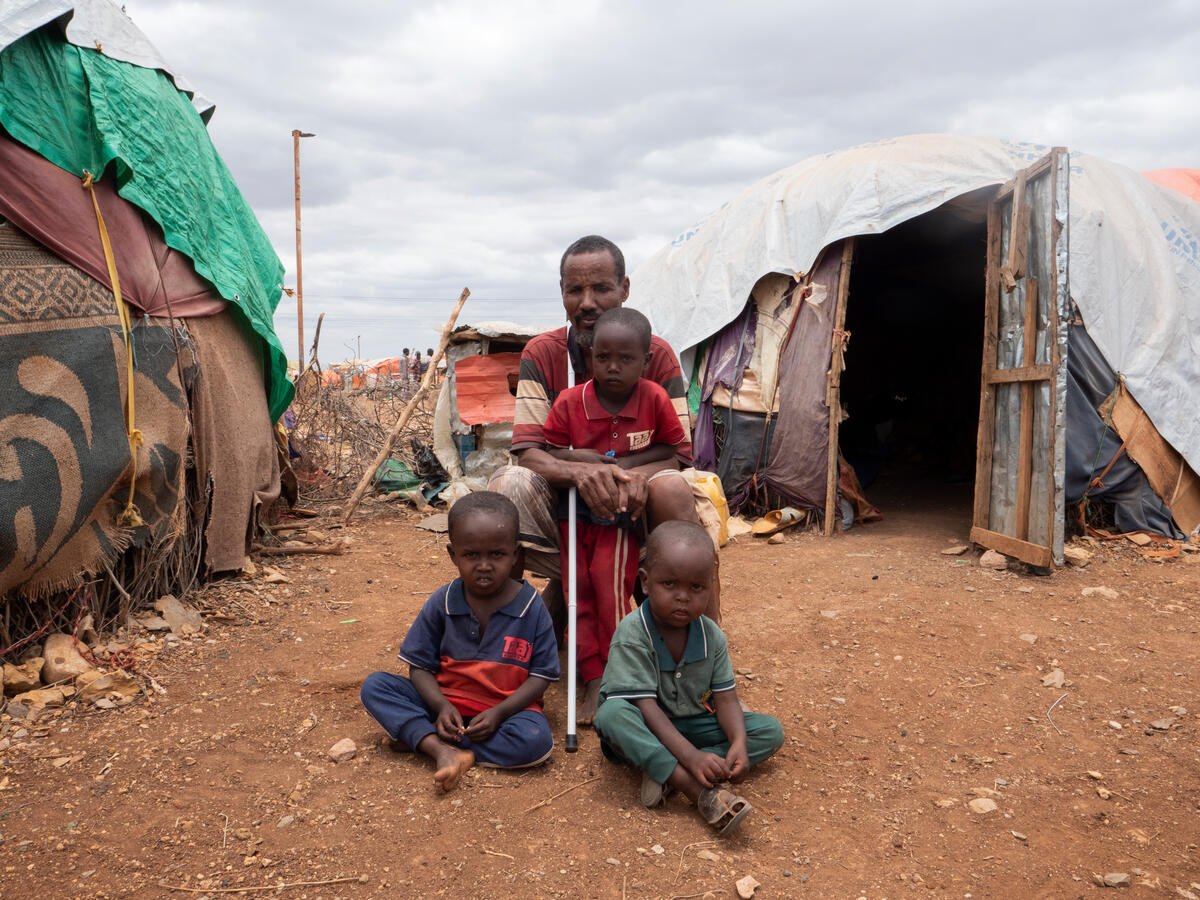Mosul residents face battle for survival
Mosul residents face battle for survival

MOSUL, Iraq – When fighting closed in on his neighbourhood in Mosul, father of three Nashwan’s brother warned him it was time to leave. Hours later, the family home was partially destroyed.
“My brother saved me,” said Nashwan, as he stood outside the temporary home in the war-ravaged city where he is sheltering with 40 members of his extended family – most of them young children who thronged around him as he spoke.
The family huddles together in just three rooms of the house, belonging to a relative who previously fled the push by Iraqi forces to retake the country’s second city from extremists. Nashwan has since returned twice to his old home to inspect the damage and collect a few belongings.
“When we fled I couldn’t even take our clothes, but the most important thing to us is food and water.”
“When I entered the house I was sad. But after a moment I thought: ‘Thank God I managed to escape.’ If we had stayed there we would have been slaughtered,” he said.
The family is still within range of artillery fire as the battle for the city rages. As temperatures in Mosul plummet towards freezing, they live without clean water, enough food or any power.
“When we fled I couldn’t even take our clothes, but the most important thing to us is food and water,” he added. Prior to the battle, he had been working as a taxi driver to support his relatives, who are jobless.
So far, more than 108,000 thousand Iraqis have fled Mosul since the fight to retake the city from extremists began on October 17, with most seeking shelter in camps operated by the government and UNHCR, the UN Refugee Agency.
But thousands of families like that of Nashwan remain displaced inside Mosul, or have returned to the city despite the ongoing battle. They are forced to find whatever shelter they can in outlying areas of the city as far from the fighting as possible
“If they stay, they risk hunger and being caught in the crossfire. If they flee, they risk being killed.”
Many risk death from stray mortar rounds and stay in bullet-scarred houses abandoned by other families. They are unable to return to their own homes, which have either been destroyed or are located in areas where the fighting is even more intense.
“As the security situation continues to deteriorate, it is vital that civilians still remaining in Mosul are not prevented from leaving the city and are allowed access to safety,” said UNHCR’s Representative in Iraq, Bruno Geddo.
“Civilians in Mosul face a stark choice. If they stay, they risk hunger and being caught in the crossfire. If they flee, they risk being killed by snipers or landmines,” he added.

As night-time temperatures drop close to freezing, those displaced within Mosul are in desperate need of food, clean water, blankets, clothes and kerosene for heating.
UNHCR has stepped up winter distributions to parts of Mosul, handing out 53,536 thermal blankets and quilts in recent weeks to those in need.
Nashwan said he wants to go back home, but cannot as fighting rages. Furthermore, essential items like medicine for family members with conditions including diabetes and high blood pressure are unavailable closer to the front lines. Last week, he received two parcels of thermal blankets and mattresses from a UNHCR partner organization.
“We need this ... We ran away so quickly that there was no time to prepare anything."
“We need this,” he said. “We are very low in terms of blankets and mattresses – we have three people sleeping under one blanket. We fled with our souls when the explosions and firing started. We ran away so quickly that there was no time to prepare anything. We fled even without our shoes.”
Faiza Abed, 30, walked for one hour to reach a UNHCR distribution from her Mosul neighbourhood, where she lives in an abandoned building. “I came to get the blankets, I have a son who is disabled and our situation is bad, we have nothing to cover us,” she said.
“I live in an unfinished building so I need something to cover up.” Her family moved to eastern Mosul with their 20 sheep two years ago, after armed groups took control of their village and all work dried up.
During the fighting she dug a hole in the ground inside the house for her and her son to shelter in. “We got very scared. We made the hole so we could hide.”









